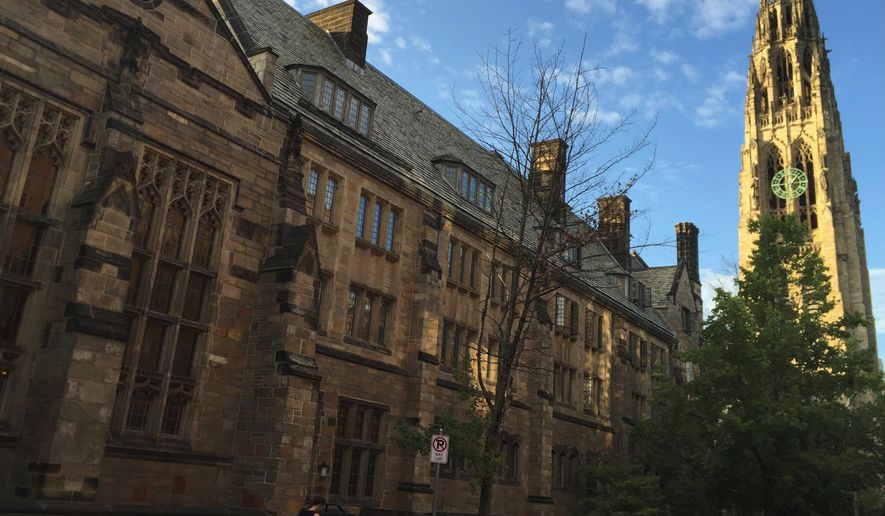Yale Law School is defending a new policy that ends funding for fellowships with organizations that refuse to hire LGBTQ students, saying it complies with federal non-discrimination laws.
But Alliance Defending Freedom, a conservative advocacy nonprofit group, says the elite law school’s policy violates the religious freedom of organizations that strive to uphold traditional Christian values.
Yale announced the policy in March, and last week issued a statement saying it is in compliance with federal policies, such as the Justice Department’s Equal Employment Opportunity statement on April 4 that included protections for “gender identity and sexual orientation.”
“The policy we announced last month is simple: going forward, we will not fund the work of an employer that refuses to hire students because they are, for instance, Christian, black, a veteran, or gay,” Yale Law School Dean Heather Gerken said in Wednesday’s statement. “Contrary to press reports, our policy does not single out any student based on religion.”
The statement did not convince Tyson Langhofer, director of the Center for Academic Freedom with Alliance Defending Freedom, that Yale’s position is nondenominational.
“It’s difficult to know whether their new statements are indicating a just, ’Hey, this is a clarification,’ or ’We’ve modified our approach,’” Mr. Langhofer told The Washington Times on Monday. “Our problem with the policy is that it’s motivated by anti-religious bigotry.”
In fact, Republican Sens. Ted Cruz of Texas and Josh Hawley of Missouri recently urged Attorney General William Barr to investigate Yale Law for possible violations of religious liberty after the school extended non-discrimination protections to three fellowship programs.
Alliance Defending Freedom would likely lose funding for its summer and post-graduate fellowships from Yale Law should the policy be implemented. It requires employment applicants to sign a “statement of faith” that is explicitly Christian and condemns “homosexual behavior.”
The fellowship funding can help pay students’ expenses while working for advocacy groups, Mr. Langhofer said, adding that students would be effectively punished for holding unpopular views without such funding from Yale.
“We’re both concerned about the impact on our organization but also similar organizations who may disagree with us on a lot of different issues,” Mr. Langhofer told The Times.
In 2014, Alliance Defending Freedom successfully represented Hobby Lobby in the arts and crafts store chain’s challenge of the Affordable Care Act’s requirement that employers pay for birth control for their employees.
Meanwhile, Yale Law also pushed back against a claim from some conservative students and Mr. Cruz that university administrators were caving to liberal student groups, such as the LGBTQ organization Outlaws, in the new non-discrimination policy. Outlaws protested a recent campus visit by an Alliance Defending Freedom attorney who discussed the Supreme Court ruling for a Christian baker in Colorado who refused to provide service for a same-sex wedding.
“Sen. Cruz appears to infer that the Law School Administration engaged in religious discrimination because this policy was raised by our students in the wake of a controversial debate,” Ms. Gerken said. “Nothing could be further from the truth.”
She said an “intellectually and ideologically diverse faculty committee” she has appointed will decide how to implement the policy.
But one conservative Yale Law student remains unconvinced. In a posting on The Federalist website this month, third-year law student Aaron Haviland said he feels that Yale has laid the ground for fundamental unfairness from school officials.
“All I want from Yale is neutrality,” Mr. Haviland told The Times in an email on Monday.
• Christopher Vondracek can be reached at cvondracek@washingtontimes.com.




Please read our comment policy before commenting.